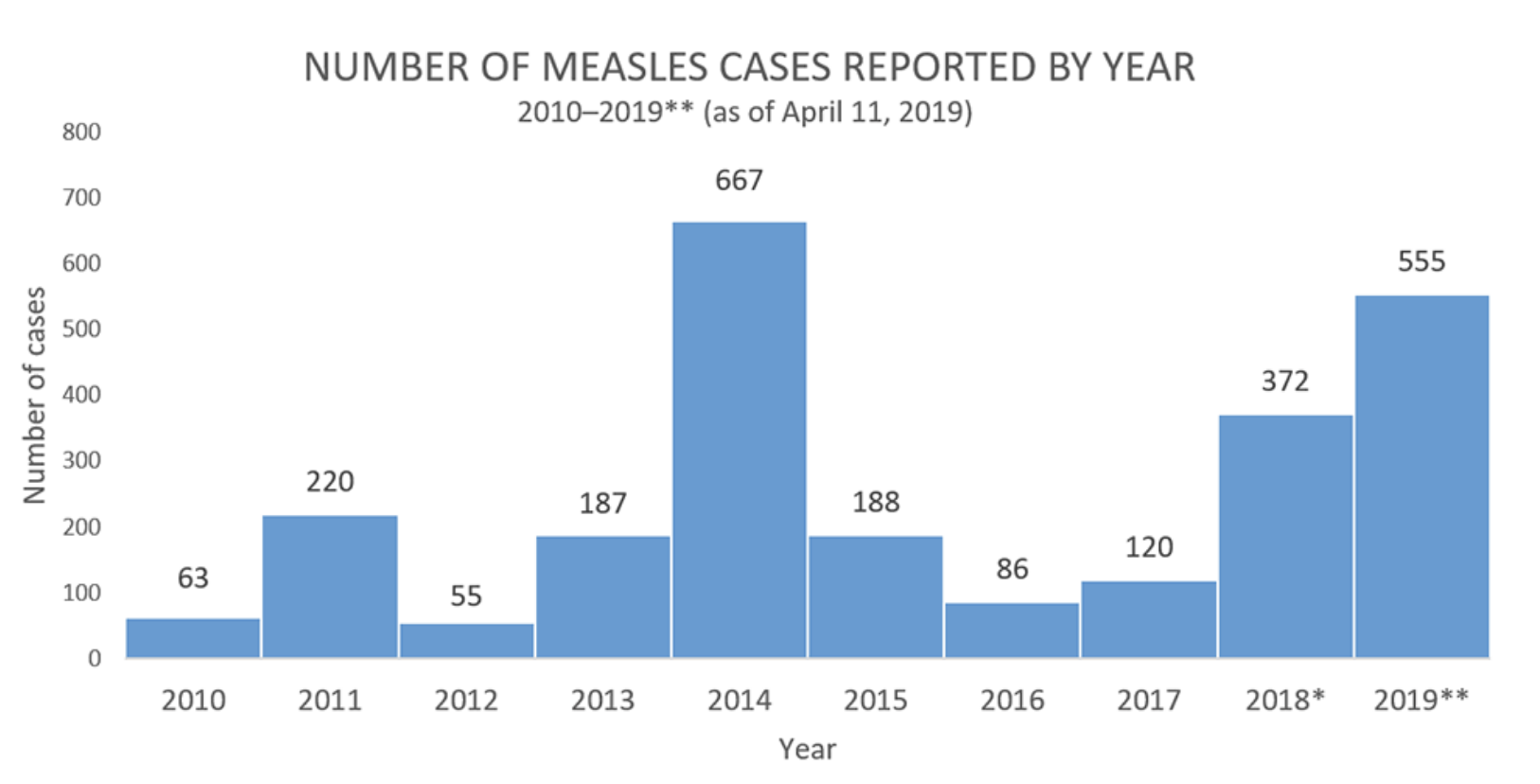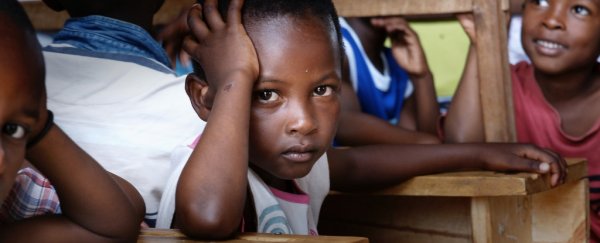'Crisis' is not a word that should be used lightly, and public health officials know that better than most. Upon reviewing this year's ongoing measles research, the directors of both WHO and UNICEF, however, are personally convinced.
"We are in the middle of a global measles crisis," they together declared in a recent opinion piece for CNN.
Whether their agencies ultimately issue the same warning remains to be seen, but so far, data show that the trend is irrefutable. Within the first three months of 2019, a preliminary survey from the World Health Organisation (WHO) has tallied a 300 percent increase in measles cases around the world.
In some regions, like Africa, the numbers have risen 700 percent from the year before. And these are just the ones we know about. WHO estimates that more than 90 percent of all global cases go unreported.
"By the time you finish reading this, we estimate that at least 40 people - most of them children - will be infected by this fast-moving, life-threatening disease," write Henrietta Fore, the executive director of UNICEF, and Tedros Adhanom Ghebreyesus, the director general of WHO, in their shared piece.
Today, all regions of the world are experiencing a surge in measles cases, even in countries with high vaccinations rates, like the US, Thailand and Israel. Then again, all it takes is one gap in coverage, or one hole in the boat, for things to get out of control.
Right now, there are ongoing measles outbreaks in the Democratic Republic of the Congo, Ethiopia, Georgia, Kazakhstan, Kyrgyzstan, Madagascar, Myanmar, Philippines, Sudan, Thailand and Ukraine.
And while many people in these countries are clamouring for vaccines, New York's recent public health emergency has more to do with medical hesitancy.
Earlier this year, WHO listed fear of vaccines as one of the most dire threats to human health in 2019, and just a few months later, that concern appears entirely justified.
With measles outbreaks in New York, Washington, California, and New Jersey, the United States has already counted more cases of this disease than all the 12 months of 2018 combined.
 (CDC)
(CDC)
"We welcome initial steps taken by digital companies such as Facebook, Amazon and YouTube to quarantine these vaccine myths," Fore and Ghebreyesus write, "but it will take much more - not only from these online platforms but from governments, individuals and the health community - to make sure all children get their vaccines at the right time."
Measles is one of the most infectious diseases on the planet, and before we had ourselves an effective vaccine, nearly all children got this potentially fatal disease by the time they were 15 years of age.
Since 2000, an estimated 20 million lives have been saved by this immunisation, and that's essentially what's at stake. The directors warn that unless the world stands up for science, for health, and for vaccines, more people will pay the price for our complacency.
If that's not a crisis now, it soon will be.
The preliminary data were published online by the World Health Organisation.
